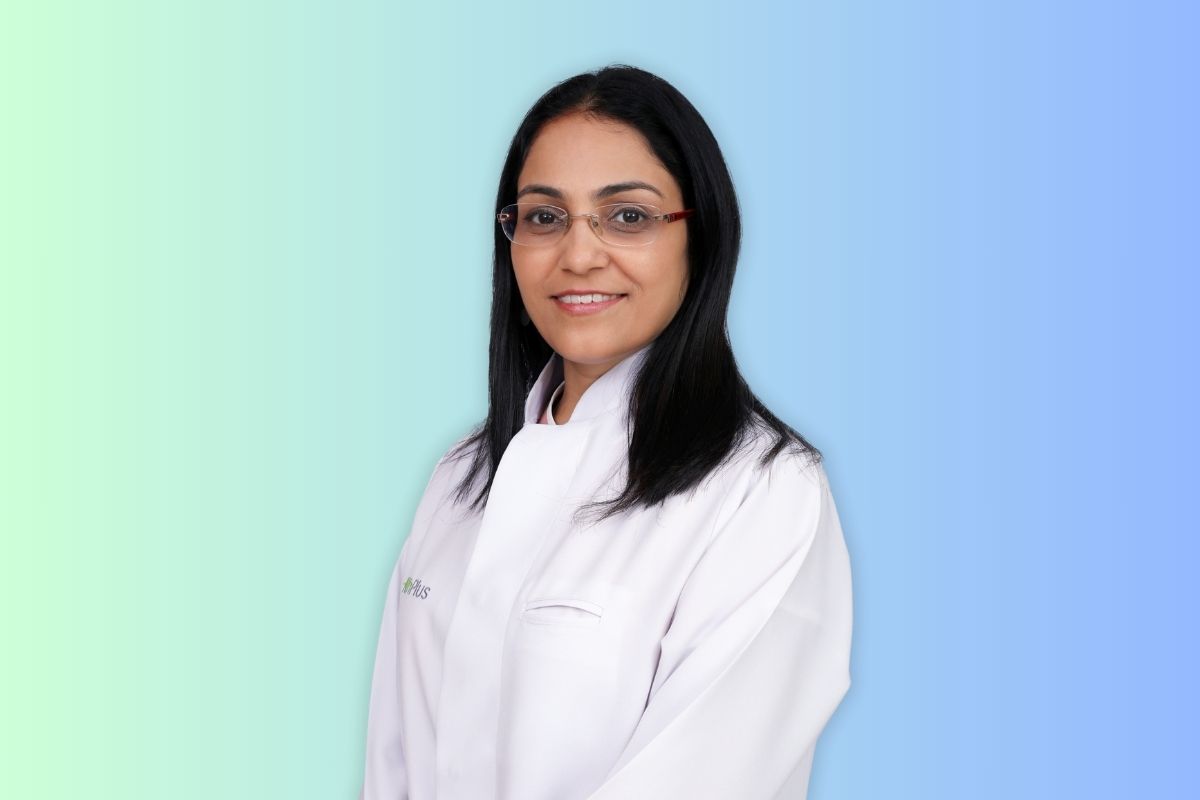
Dr Neha Gami of HealthPlus Family Health Center explains symptoms, early prevention, treatment and all things cervical cancer
PARTNER CONTENT: In the realm of women’s health, a topic that continues to demand attention is cervical cancer. With medical advancements in recent years, HealthPlus Family Health Center has continued to battle this formidable adversary with large success.
However, there is still a long way to go in terms of raising awareness on risk factors, prevention strategies, and the crucial role of regular screenings when it comes to early detection.
Cervical cancer primarily stems from the human papillomavirus (HPV), a virus that can silently infect your body for several years before potentially evolving into cancer over time. While HPV infection is widespread, only a fraction of cases progress to cervical cancer.
There are different types of cervical cancer, says Dr Neha Gami, Specialist in Obstetrics & Gynecology at HealthPlus Family Health Center.
“The cervix has glands as well as squamous tissue. Cancer can start from glands or from the squamous cells, but the more common one is the squamous cell carcirnoma, which is primarily caused by an HPV infection.”
Some of the signs to be on the lookout for involve blood mixed in vaginal discharge, she adds.
“Symptoms can also include bleeding after contact with your partner. In advanced stages of cervical cancer, it can affect your bladder, kidney, etc. But that’s a very, very late stage. The earliest symptoms of precancerous changes can go on for about 10-15 years before you actually develop cancer.
That could include bloody discharge and discomfort too, or sometimes there are no symptoms at all. And that’s why it’s important to go for screening for cervical cancer, because most women will be asymptomatic before they actually develop precancerous or cancerous changes.”
In Abu Dhabi, the Department of Health recommends all women between 25 to 65 years of age to do a Pap smear every three to five years. The same protocol is followed in most countries across the world, with some recommending screenings at 21 years, or at least every three years since you have a partner.
While cervical cancer is not known to have any genetic factor, there are several risk factors including persistent HPV infection and of course, lifestyle factors such as smoking, a compromised immune system from other autoimmune conditions, long-term use of birth control, early marriage and childbirth, multiple partners and such.
Myths and treatment
A common myth the doctor finds is the fear around the Pap smear.
“There’s a lot of myths around it. People think it’s very painful, or that once you’ve done it, you don’t need to repeat it. Some people think they will be told they have cancer as soon as they do their first pap smear. It’s a simple clinical examination, probably 30 seconds of discomfort at most. And you get so much important information from it. So that fear needs to go, not just in the UAE but across the world,” says Dr Neha
Fortunately, healthcare and screening processes for cervical cancer have come a long way, which brings with it reduced mortality rates, early detection and non-invasive treatments.
You might also like: Coping with Asthma – the causes, symptoms and what to do
As leaders, HealthPlus Family Health Center brings the best of science and technology to champion early detection, with Dr Neha elaborating, “In terms of screening, we offer Pap smears as well as an HPV virus testing. The HPV virus tests provides very useful added information to decide which women are at high risk or otherwise.
We also have the latest and commonly used HPV vaccine, which protects against nine types of HPV viruses. The best age to administer it is before 15 years but can be done even up to 26 years of age.”
A lesser-known fact might be the availability and recommendation of the HPV vaccine for young boys. While the school health programmes have not incorporated them in yet, Dr Neha suggests, “It is available and even boys can take the vaccine, which will help prevent them from contracting or transmitting the virus.”
On the treatment front, if somebody tests positive for a Pap smear or HPV test, or presents alarming signs, a colposcopy is conducted, she says on the process of diagnosing and treatment.
“A colposcopy is a procedure in which we actually look at the cervix. We identify the areas of change and then based on our training and experience tell you whether these are early, advanced or cancerous changes. Based on that, a biopsy is taken, which is the final way to diagnose if a person has pre cancer or cancer.”
Fortunately, data from the UAE in recent years shows the awareness campaigns run by the government, including the vaccine program since 2008, have left a positive impact.
“The numbers [mortality rate] are going down. And one of the main factors is regular screenings and early detection. And obviously we have more advanced radiotherapy techniques plus treatment modalities as well. Surgery has also progressed from open surgeries; we can now even do the surgeries laparoscopically. That improves the survival and the longevity of the patient,” she says.
With most insurances in the UAE inclusive of Pap smears, as Dr Neha succinctly puts it, “No woman should ever have to die from cervical cancer in today’s times.”
For more information, visit HealthPlus Family Health Center
Follow Yalla – Abu Dhabi Life for all the latest news across the capital and beyond

